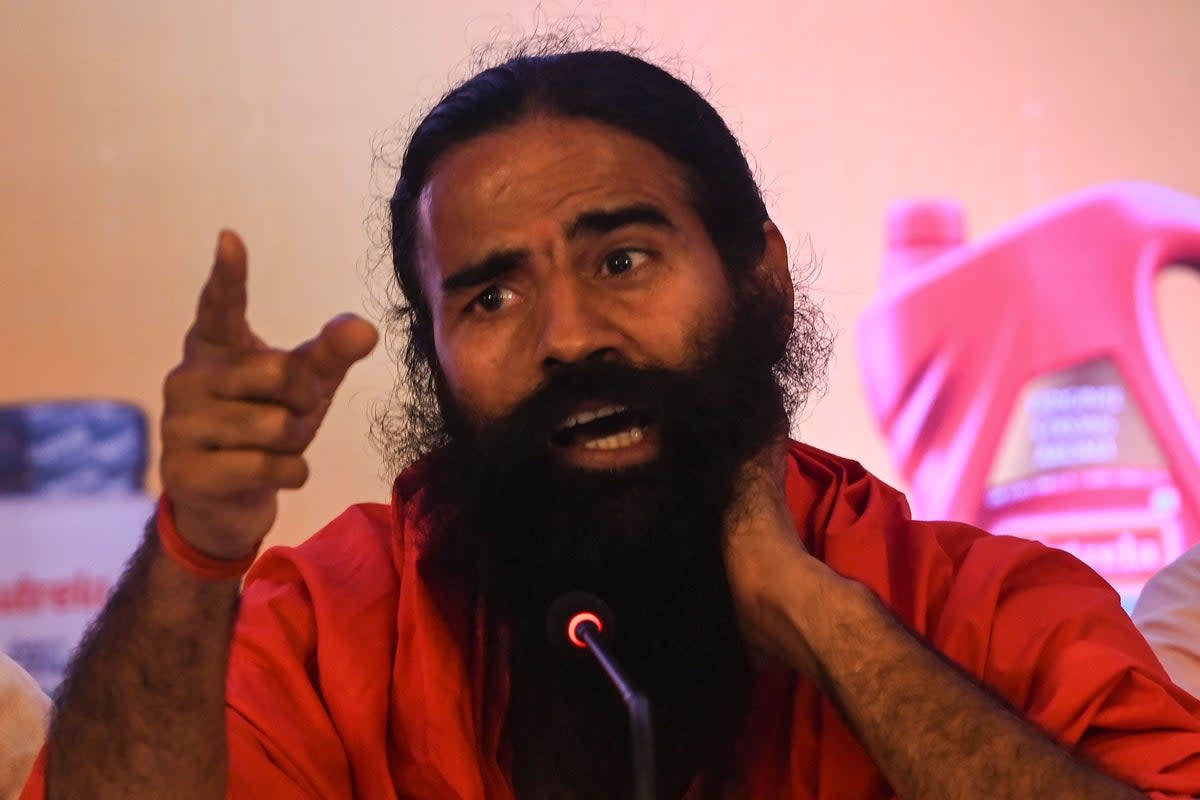Yoga guru Ramdev’s Patanjali ayurveda firm barred from publishing ‘misleading’ ads in India

India’s top court on Tuesday restrained an ayurveda company co-founded by one of the country’s most popular yoga gurus from publishing advertisements of its traditional medicines meant for treating some diseases.
The order was issued in an ongoing legal dispute between the Indian Medical Association (IMA) and Patanjali Ayurved. The IMA has accused the consumer firm of disparaging other forms of conventional medicines.
In their plea, the IMA accused Patanjali of carrying out a smear campaign against modern medicine and vaccination, while claiming that the firm offered "permanent solution" for conditions such as blood pressure, asthma and diabetes.
The Supreme Court bench, headed by justices Hima Kohli and Ahsanuddin Amanullah, issued a contempt notice to Patanjali for allegedly flouting an undertaking against publishing advertisements about its drugs.
“The entire country has been taken for a ride,” said the court, as it lashed out at the federal government under prime minister Narendra Modi, asking about the steps taken on complaints against the Patanjali for publishing “misleading advertisements”.
The observation came after senior advocate PS Patwalia, appearing for IMA, apprised the apex court about continued advertisement by the organisation against the efficacy of its medication, arguing that it was prohibited under India’s Drugs and Magic Remedies Act.
Yoga guru Ramdev, who co-founded Patanjali, has previously denied the criticism and accused doctors of spreading propaganda against traditional medicines, which are hugely popular in India.
The court said Patanjali violated its assurance to judges last year in the ongoing case that it would not publish advertisements that make "casual statements claiming medicinal efficacy".
The judges also asked Patanjali to explain why it should not initiate contempt of court proceedings against the company.
Ramdev has a huge fan following in India and offers yoga cures for many illnesses through his TV shows.
Patanjali sells personal care products and ayurvedic medicines, but has often faced the ire of doctors and activists, who accuse the firm of making incorrect assertions about medicinal efficacy.
Earlier in 2021, India’s health minister condemned Ramdev after he derided medical practitioners and their role in the pandemic. He had claimed that during the Covid crisis, “hundreds of thousands of people died after taking allopathic medicines”, calling modern medicine “stupid” and based on “bankrupt science”.
At the time, the Indian Medical Association, which represents 300,000 doctors, called for the yoga guru to be prosecuted under pandemic emergency laws as a threat to public health. The then health minister, Harsh Vardhan, also criticised Ramdev, saying his comments “insulted” those fighting Covid on the frontlines.
It represented a particularly significant intervention, as Mr Vardhan has himself attended the launch of Patanjali products including “Coronil”, which was originally marketed in 2020 as the world’s “first evidence-based medicine” against Covid-19.
The manufacturer was later forced to change its marketing after its claims were disproved. The company continues to promote the product, a tablet containing trace amounts of a blend of roots and herbs, as an “immunity booster”.
Senior advocate Vipin Sanghi, appearing on behalf of Patanjali, argued that as far as Ramdev was concerned, he was a sanyasi (ascetic). The court fixed the matter for further hearing on 19 March.
Additional reporting by agencies

 Yahoo News
Yahoo News 
